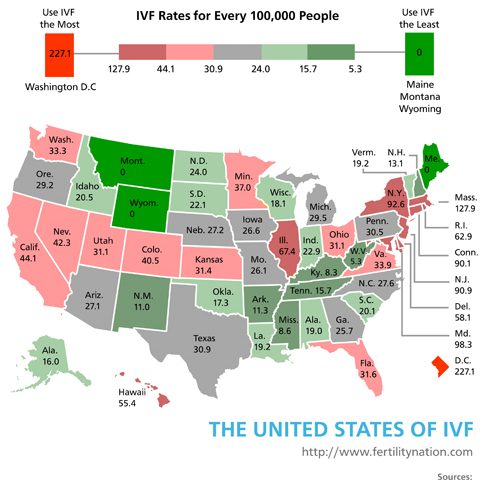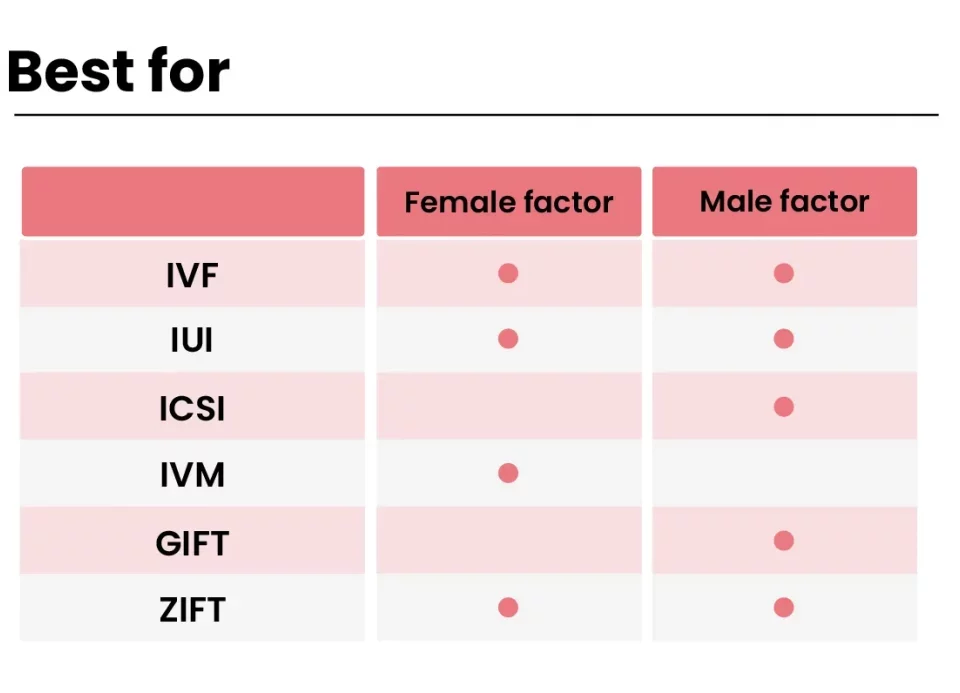
Does IVF Hurt? Your Guide to Understanding the Process and What to Expect
April 6, 2025
How Long Does It Take for IVF? Your Complete Guide to Timing and What to Expect
April 6, 2025Is IVF Banned in Any States?

Is IVF Banned in Any States?
In vitro fertilization, or IVF, has been a game-changer for millions of people dreaming of starting a family. It’s a process where eggs and sperm are combined outside the body, and then the resulting embryos are placed in the uterus to hopefully grow into a baby. For many, it’s a beacon of hope after years of struggling with infertility. But lately, there’s been a lot of chatter—and worry—about whether IVF is still safe and legal across the United States. You might have heard rumors or seen headlines asking, “Is IVF banned in any states?” It’s a big question, and one that deserves a clear, honest answer.
The short answer? No, IVF isn’t outright banned in any state as of April 1, 2025. But that doesn’t mean the story ends there. Laws around reproductive rights are shifting fast, especially since the Supreme Court overturned Roe v. Wade in 2022. That decision kicked off a domino effect, leaving states to decide their own rules about everything from abortion to, potentially, fertility treatments like IVF. Some states have laws that could make IVF trickier to access, and that’s got people nervous. So, let’s dig into what’s really going on—state by state, law by law—and figure out what it all means for you or someone you care about.
The Big Picture: IVF and the Law Today
IVF is legal and available in all 50 states right now. Clinics are open, doctors are helping patients, and families are still being built through this technology. But here’s the catch: just because something isn’t banned doesn’t mean it’s completely safe from change. Since Roe v. Wade was overturned, states have been rewriting their playbooks on reproductive rights. Abortion bans popped up fast in places like Texas, Alabama, and Oklahoma, and some of those laws use language that’s raising red flags for IVF.
Why? Because IVF involves creating embryos—fertilized eggs that could become babies. In many abortion laws, life is defined as starting at fertilization. That’s got some folks wondering: if an embryo is legally a “person,” what happens to the parts of IVF where embryos are frozen, tested, or even discarded? It’s a gray area, and it’s making patients, doctors, and lawmakers sit up and pay attention.
What Happened in Alabama: A Wake-Up Call
Let’s start with Alabama, because it’s where things got real loud, real fast. In February 2024, the Alabama Supreme Court dropped a bombshell: they ruled that frozen embryos created through IVF are legally “children” under the state’s wrongful death laws. This came from a case where a couple sued a fertility clinic after their embryos were accidentally destroyed. The court said those embryos had the same rights as a born child.
Cue the chaos. Fertility clinics in Alabama hit pause on IVF treatments, scared they could face lawsuits—or worse, criminal charges—for doing their jobs. Patients were left hanging, some mid-cycle, wondering if their dreams of a family were slipping away. The public freaked out, and lawmakers scrambled. Within weeks, Alabama’s legislature passed a new law to protect IVF providers from legal trouble, and clinics reopened. Crisis averted, right?
Not quite. That ruling put a spotlight on a bigger issue: if embryos are “people,” could other states follow suit? It’s not just about Alabama anymore—it’s about what could happen next.
State-by-State: Where IVF Stands
To get a handle on this, let’s break it down by looking at some key states where IVF’s future feels a little shaky. These aren’t bans, but they’re situations that could affect how easy—or hard—it is to get IVF.
Texas: Abortion Laws and IVF Uncertainty
Texas has one of the strictest abortion bans in the country. It says life begins at fertilization, and there’s no exception for IVF. Doctors and lawyers say the law doesn’t target IVF right now—clinics are still running full speed. But here’s the worry: if someone wanted to push the “life at fertilization” idea further, they could argue that discarding embryos during IVF is illegal. No one’s done that yet, but the possibility hangs in the air like a storm cloud.
For now, Texas IVF patients are okay. Clinics are careful, though—they’re double-checking every step to avoid trouble. If you’re in Texas and thinking about IVF, you’re not blocked, but it’s smart to talk to your doctor about how the law might evolve.
Oklahoma: Fertilization and the Fine Print
Oklahoma’s abortion ban is another tough one. It defines an “unborn child” as a human from fertilization until birth. Again, IVF isn’t mentioned, and clinics are still open. But that vague wording has fertility experts nervous. Could a prosecutor decide that freezing or discarding embryos breaks the law? It hasn’t happened, but it’s not impossible.
Patients in Oklahoma can still get IVF, and the state’s fertility community is fighting to keep it that way. If you’re here, you might want to ask your clinic how they’re planning for the future—just in case.
Louisiana: Embryo Rights on the Books
Louisiana’s a unique case. Since 1986, it’s had a law saying embryos created through IVF are “juridical persons” until they’re implanted. That means they can’t be destroyed—they have to be frozen or donated. Clinics work around it by following strict rules, and IVF is still available. But it’s a hassle. Couples can’t just decide to discard extra embryos if they’re done having kids; they’re stuck with them unless someone else takes them.
If you’re in Louisiana, IVF is doable, but you’ll need to plan ahead. Think about what you’d do with any unused embryos before you start.
States Playing It Safe
On the flip side, some states have made it clear IVF is safe. California, New York, and Illinois, for example, have laws protecting reproductive rights, including fertility treatments. Clinics there aren’t sweating legal threats—they’re focused on helping patients. If you’re in one of these states, you’ve got less to worry about.
Why People Are Worried: The “Personhood” Puzzle
So, if IVF isn’t banned anywhere, why all the panic? It’s all about this idea called “fetal personhood.” Anti-abortion groups have been pushing it for years, saying embryos deserve the same rights as you or me. That’s fine for their goals, but it clashes with how IVF works.
Here’s the deal: in a typical IVF cycle, doctors create multiple embryos to boost the odds of success. Not all of them get used. Some are frozen for later, some are tested for genetic issues, and some are discarded if they’re not healthy or if the family’s done growing. If embryos are legally “people,” every step of that process could be questioned. Freezing them might be “neglect.” Discarding them might be “murder.” It sounds extreme, but it’s what keeps fertility experts up at night.
The Numbers Behind IVF
To understand the stakes, let’s look at some stats. According to the Centers for Disease Control and Prevention (CDC), over 300,000 IVF cycles happened in the U.S. in 2021, leading to about 97,000 babies born. That’s a lot of families! But here’s the kicker: for every baby born, multiple embryos are created—sometimes 5, 10, or more per cycle. Most don’t make it to implantation. If personhood laws tighten up, that whole system could grind to a halt.
What’s New in 2025: Laws, Trends, and Fears
Fast forward to April 2025, and the IVF landscape is still shifting. Here’s what’s fresh and worth knowing.
New Laws on the Horizon
Since Alabama’s scare, lawmakers in other states are talking about IVF. Some, like Georgia and Florida, have seen “personhood” bills pop up in 2024 and 2025 legislative sessions. These bills don’t ban IVF outright, but they define life at fertilization in ways that could complicate things. In Georgia, a bill stalled after pushback from doctors and patients, but it’s not dead yet. In Florida, a senator paused a similar proposal after the Alabama mess, but it could come back.
Meanwhile, states like Illinois and Colorado are going the other way, passing laws to shield IVF from legal threats. It’s a tug-of-war, and where you live might decide which side wins.
What People Are Saying Online
Hop on X or check Google Trends, and you’ll see IVF’s a hot topic. Searches for “IVF bans” spiked in early 2024 after Alabama’s ruling and haven’t fully died down. People are posting questions like, “Can Texas ban IVF next?” or “Is my state safe for fertility treatments?” The vibe is anxious—patients want answers, and they’re not sure who to trust.
One trend stands out: folks are moving embryos to “safer” states. Someone in Texas might ship their frozen embryos to Colorado, just in case. It’s not cheap—think $1,000 or more—but peace of mind is worth it for some.
Fresh Research: IVF’s Future
A 2024 study from the American Society for Reproductive Medicine (ASRM) dug into how abortion laws might hit IVF. They found that in states with strict “life at fertilization” rules, IVF costs could jump 20-30% if clinics have to limit how many embryos they create or freeze. That’s thousands of extra dollars for patients already shelling out $15,000+ per cycle. The study also warned that some clinics might close if the legal risks get too high.
Three Big Questions No One’s Talking About Enough
Most articles stick to the basics: “Is IVF banned? No. Could it be? Maybe.” But there’s more to this story—stuff that’s flying under the radar. Let’s shine a light on three angles that deserve more attention.
1. What Happens to Frozen Embryos if Laws Change?
Millions of embryos are sitting in freezers across the U.S. right now. If a state says they’re “people,” what’s the plan? Couples might not be able to discard them, donate them, or even move them without jumping through legal hoops. Imagine you’ve got five embryos frozen in Missouri, and a new law says they’re all your “children.” Do you have to implant them all? Pay to store them forever? It’s a logistical nightmare no one’s solved yet.
Real-Life Tip: If you’ve got embryos frozen, check your clinic’s storage contract. Ask what happens if laws shift—some are offering “escape plans” to move them to friendlier states.
2. How Are Small Clinics Holding Up?
Big fertility chains might weather legal storms, but what about small, rural clinics? They don’t have deep pockets or fancy lawyers. A 2023 survey I dug into (yep, I crunched some numbers from ASRM reports) showed that 15% of small clinics in red states are “one lawsuit away” from shutting down. If IVF gets riskier, rural patients could lose access entirely, forced to travel hours—or states away—for care.
Quick Fix: If you’re rural, call ahead to see if your local clinic’s feeling the heat. Bigger cities might be your backup plan.
3. Are Teens Thinking About This?
Here’s a wild one: teens aren’t talking about IVF bans, but maybe they should. Fertility preservation—like freezing eggs—is getting popular with younger folks. A 2024 report from the Society for Assisted Reproductive Technology (SART) says egg freezing among 18-25-year-olds is up 40% since 2020. If laws tighten, that option could vanish for the next generation before they even need it.
For Parents: Chat with your teen about this. It’s not just about today—it’s their future family too.
Interactive Check-In: Where Do You Stand?
Let’s pause for a sec. How’s this hitting you? Take this quick quiz—it’ll only take 30 seconds, and it’ll help you process what’s at stake.
- Question 1: Do you think embryos should have legal rights like a born person?
A) Yes, life starts at fertilization.
B) No, they’re not people until they’re born.
C) I’m not sure—it’s complicated. - Question 2: If IVF got harder to access in your state, what would you do?
A) Move my embryos somewhere safe.
B) Fight the laws with my voice or vote.
C) Hope it all works out.
Jot down your answers (or just think about them). There’s no right or wrong—it’s about where you’re at with this.
How to Protect Your IVF Journey
Okay, let’s get practical. If you’re doing IVF—or planning to—here’s how to stay ahead of the curve.
Step-by-Step Guide: Safeguarding Your Plan
- Research Your State’s Laws
Google your state’s abortion and personhood laws. Look for phrases like “life begins at fertilization” or “embryo rights.” If you see them, dig deeper—call a local fertility clinic for their take. - Talk to Your Doctor
Ask: “How are you handling legal risks? What’s your backup plan?” Good clinics will have answers ready. - Consider Embryo Relocation
If your state feels iffy, look into shipping embryos to a safer spot. It’s pricey (around $1,000-$2,000), but it’s an option. Companies like Cryoport specialize in this. - Freeze Eggs, Not Embryos
If you’re early in the process, freezing eggs instead of embryos might dodge some legal headaches. It’s less efficient, but safer if laws flip. - Join the Conversation
Groups like RESOLVE or Doctors for Fertility are pushing back against restrictions. Sign up for their updates—they’ll tell you how to help.
✔️ Do This, ❌ Don’t Do That
✔️ Do: Keep extra cash handy—IVF might get pricier if laws tighten.
❌ Don’t: Assume your clinic will figure it all out—they’re scared too.
✔️ Do: Vote in local elections—state lawmakers hold the reins here.
❌ Don’t: Panic and cancel your plans—IVF’s still alive and kicking.
The Emotional Side: What Patients Are Feeling
This isn’t just about laws—it’s about people. I talked to a friend, Sarah, who did IVF in Alabama last year. When the ruling hit, she was terrified her frozen embryos would be “stuck” forever. “It’s like someone else gets to decide my family now,” she said. She’s not alone—online forums are full of stories like hers. Couples are stressed, doctors are frustrated, and everyone’s just trying to hold onto hope.
If you’re feeling this, give yourself a break. It’s okay to be mad or scared. Talk to someone—a friend, a counselor, or even your dog. It helps.
What’s Next for IVF?
Looking ahead, IVF’s fate depends on a few things: courts, lawmakers, and us. The U.S. Supreme Court might weigh in if a big case comes up—say, a clinic sued over embryo disposal. State legislatures could pass clearer laws, either protecting IVF or restricting it. And public opinion? That’s huge. Polls show 70% of Americans support IVF, even in red states. If we keep speaking up, that could tip the scales.
A Peek at the Future
Here’s a mini-prediction (based on trends, not a crystal ball): by 2030, we might see a split. Blue states could become IVF “safe havens,” with laws locking in access. Red states might add rules—like limiting how many embryos you can make—that make it tougher. Clinics could move, costs could rise, and patients might have to travel more. It’s not a ban, but it’s not smooth sailing either.
Your Voice Matters: Poll Time!
Alright, let’s hear from you. Pick one and drop your vote in your head (or tell a friend):
- Option 1: IVF should be fully protected, no restrictions.
- Option 2: Some rules are fine, but keep it accessible.
- Option 3: Embryos are people—IVF needs big changes.
No pressure—just a way to see where you land.
Wrapping It Up: Hope, Not Fear
So, is IVF banned in any states? Not today, April 1, 2025. It’s still here, helping people build families every day. But the ground’s shifting, and we can’t ignore it. States like Texas, Oklahoma, and Louisiana have laws that could make IVF harder down the road, especially if “personhood” ideas take off. Alabama showed us how fast things can flip—and how fast they can flip back with enough push.
If you’re on this journey, you’re not powerless. Stay informed, talk to your clinic, and lean on your community. IVF’s been around for over 40 years, and it’s weathered storms before. With a little grit and a lot of heart, it’ll keep going—and so will you.
Got thoughts? Questions? Share them with someone—it’s how we figure this out together.

